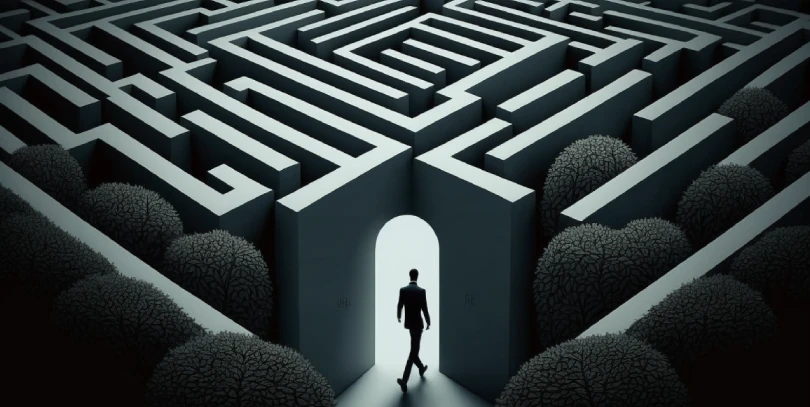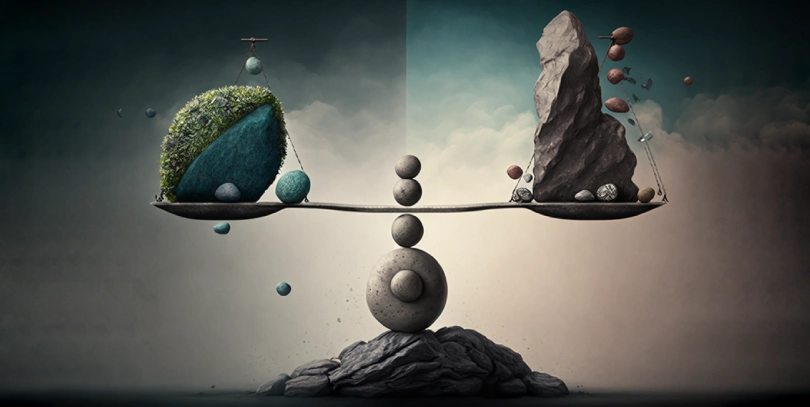How to Make Important Life Decisions: Tips and Recommendations

Life is an endless series of decisions. Some decisions may not have significant implications for your entire life, but others can have enormous consequences. For instance, the decision to move to the other end of the country for a job has a ripple effect, impacting finances, the routine of daily life, and ultimately, happiness.
For the most part, people are concerned about how to make decisions correctly. Partly because making a choice can lead to outcomes different from what was planned. Such unmet expectations can lead to mood disruptions and even depression.
Decision-making is often challenging. Weighing options is particularly difficult due to certain biases that can veer you off course. These biases may involve an inflated or deflated estimation of the likelihood of something happening to you (for example, being deceived in a major purchase or falling victim to a crime), based on whether your friends have faced something similar or how often you encounter it in the media.
Another reason decision-making is difficult lies in the tendency to overvalue immediate satisfaction or immediate pain compared to long-term consequences. (Who hasn’t gone grocery shopping hungry, only to realize that none of what they bought qualifies as real food?)

The reality is that people make numerous decisions every day, from trivial (what should I wear today?) to momentous (should I buy this house?). The sheer volume of decisions demanding attention can be overwhelming. Decision-making becomes more complex when faced with multiple options. When confronted with a significant choice, it can be challenging to sift through the noise and access the necessary information. It’s much more exhausting.
Rest assured, none of these problems is insurmountable, and you can develop the ability to make rational decisions.
In this article, I hope to assist you in definitively answering the nagging question: “What to do when you can’t make a decision?”
Focus on what you truly want
Without clear goals or a clear understanding of what you really want, making a decision can lead you to concentrate on the wrong things.
Ask yourself, “What do I hope to achieve by making this choice?” Focus on aspects that are not easily quantifiable. This can even apply to smaller decisions, such as choosing a place for dinner with friends. If your goal is meaningful conversation, you should opt for a quieter setting.
When it comes to more significant matters, this approach still works. For example, when weighing multiple job offers, consider what aspects of the new job will enhance your life beyond the salary: work-life balance, commute time, benefits.
Avoid fixating on insignificant decisions
Most of the time, it’s worth devoting attention to making big and important decisions, and it’s not worth spending too much time and energy on trivial matters.
There’s also no need to overthink the quality of decision-making on small issues. Although the concept of “decision fatigue” (i.e., the idea that the more decisions you make throughout the day, the more likely you are to make a poor choice) has gained widespread acceptance, research does not confirm its presumed effect. If you have to make 10 decisions a day compared to two, it doesn’t mean your 10th choice will be worse. There is no evidence of that. So, don’t spend too much time pondering which flavor of ice cream to choose after a long day: It won’t be a wrong choice.
Make your decision as early as possible
In some cases, making a decision before finding yourself in a specific situation can help you resist the influence of external forces and avoid being overwhelmed by the multitude of options. Going to the grocery store with a list will help you buy everything you need, not just three cucumbers and a bit of cheese. Deciding on the amount of money you’re comfortable spending before a shopping spree or planning places to visit on vacation are examples. There are various situations when, in a crucial moment, you might make a decision that you’ll later regret.
Preemptive decision-making can prevent the emergence of desires that might turn out to be detrimental. I have written a separate article in the blog providing more details on how to fulfill your desires.
Gather Multiple Opinions on Important Matters
Don’t make significant decisions in a vacuum. Seek several opinions—ideally from individuals with experience in the relevant subject. The more experienced individuals you consult, the less likely they are to base their assessments on bias, increasing the likelihood of arriving at a rational decision.
If you are contemplating adopting a puppy, ask friends and family who have pets about the significant challenges associated with pet care and whether they believe you are suited for the responsibility.
Speak with each person individually to glean their opinions without external influence.
Remember Your Emotions
Emotions have gained a bad reputation for their negative influence on decision-making. On the other hand, emotions lie at the core of our individuality—it’s our nature. Thus, it’s impossible to separate emotions from logic. The key is to understand how emotions impact your choices.

For instance, it’s not advisable to make significant decisions when you’re grieving or have just had an argument with a partner, as you’ll be in a less than optimal state of mind. Understanding that, for example, anger prompts us to take more significant risks can help you grasp why you want to aggressively tailgate a car that just cut you off on the highway.
Being aware that your emotions pull you in a certain direction can help you better accept these feelings as they are and ultimately regulate them. Don’t try to suppress your emotions. Successfully overcoming emotions is impossible, and all it does is introduce stress into your life. Instead, regulate emotions through a process called reevaluation, where you create a new context for the situation.
For example, rather than boiling with rage because your boss didn’t include you in a meeting invitation, reassess the situation and tell yourself he was in a hurry and didn’t realize he forgot to add you.
Another tactic is called self-expression, which may involve venting all your emotions by keeping a journal. In terms of decision-making, this could look like expressing your emotions to a friend about having a tough day at work and then reconsidering whether you genuinely want to quit your job.
Thoughtfully Approach the Use of “Pros” and “Cons” Lists
There is a common belief that “pros” and “cons” lists are helpful for effective decision-making. Many educational materials online recommend this decision-making algorithm. However, this methodology is overrated. What you truly want is not that simple. It is based on very complex and nuanced beliefs and memories.

Nevertheless, they can still be a useful tool. When you force yourself to list the good and the bad in each choice, you have to slow down and think about your priorities and values. For example, when deciding whether to skip your friend’s upcoming wedding due to the high cost of attending multiple weddings in a year, the “pros” and “cons” list will make you consider how much you value that friendship compared to your goal of saving more money.
Your actions should be a genuine reflection of your needs, and the “pros” and “cons” list can be a useful way to determine what you really want.
Perceive Decisions as Opportunities
Don’t think of decisions only as defensive measures meant to prevent a worsening of your life. You can make a choice that will make a good situation even better. The decision to take marketing courses or start a book club can be a pure positive, enriching your life.
What decision can I make to make my life more interesting in the future? If you think about several options and choose one, your life won’t become worse just because you decided to think about it.
